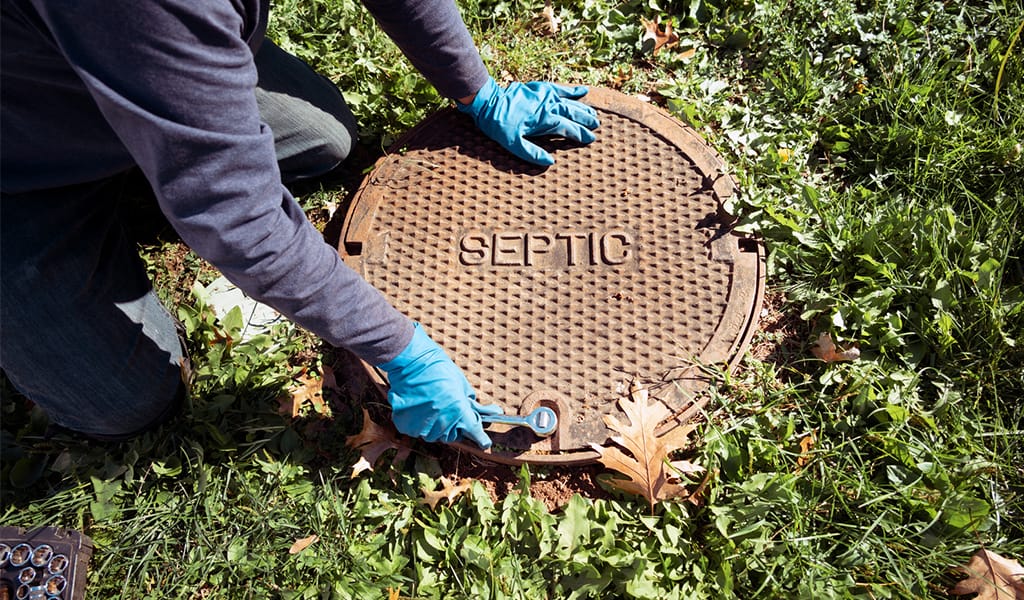Common Septic Tank Problems
Septic tanks are an essential part of many residential and commercial properties, providing a self-contained system for the treatment and disposal of wastewater. However, like any other component of a property, septic tanks can encounter various issues over time. In this article, we will explore some of the most common septic tank problems that homeowners and property owners may face, along with their causes, signs, and potential solutions.
What is a Septic Tank?
Septic tanks are underground structures that store and treat wastewater from households or businesses that are not connected to a centralized sewer system. They rely on natural bacterial processes to break down solid waste and separate it from the liquid effluent. However, several factors can lead to malfunctions and issues within the septic tank system:
Lack of Regular Maintenance
One of the primary causes of septic tank problems is the lack of regular maintenance. Without proper care and periodic inspections, septic tanks can become overwhelmed with solid waste, leading to clogs, backups, and potential system failure. Regular pumping and inspection of the tank are crucial to prevent such issues.
Drainage Issues
Improper drainage is another common problem that can affect septic tanks. If the drain field is not designed or installed correctly, it may fail to absorb and distribute the effluent effectively. This can result in pooling water, soggy areas in the yard, or even sewage backups in the house.
Septic Tank Overflow
Septic tank overflow occurs when the tank exceeds its capacity and cannot handle the incoming wastewater. It can happen due to excessive water usage, a malfunctioning pump, or a clogged drain field. Signs of septic tank overflow include slow drains, gurgling sounds in plumbing fixtures, and sewage odors in and around the property.
Clogging and Blockages
Clogging and blockages within the septic tank system can cause significant problems. Solid waste, grease, and other substances can accumulate in the pipes, leading to backups, slow drains, and foul odors. Flushing non-biodegradable items or excessive use of chemicals can contribute to clogging issues.
Foul Odors
Unpleasant odors emanating from the septic tank or drain field are a clear indication of a problem. It could be due to a malfunctioning vent pipe, a full or overflowing tank, or a leak in the system. Identifying and resolving the source of the odor is crucial to prevent further complications.
Tree Root Intrusion
Tree roots seeking moisture and nutrients can infiltrate septic tank systems through cracks or joints in pipes. As the roots grow, they can cause blockages and structural damage to the system. Regular inspection and root maintenance around the septic tank area can help prevent root intrusion.
Tank Corrosion
Over time, septic tanks can deteriorate due to corrosion, especially if they are made of metal or concrete. Corrosion weakens the tank structure, making it susceptible to leaks, cracks, and eventual failure. Harsh chemicals, high groundwater levels, and improper maintenance can contribute to the corrosion process. Regular inspections and proactive measures can help identify and address corrosion issues before they escalate.
Hydraulic Overloading
Hydraulic overloading occurs when the septic tank receives an excessive amount of water within a short period. This can happen during heavy rainfall, improper diversion of surface water, or a malfunctioning water treatment system. Hydraulic overload puts a strain on the tank’s capacity, hindering its ability to effectively treat the wastewater. It can lead to backups, slow drainage, and system failure.
Pump Failure
Septic tank systems often rely on pumps to transport effluent from the tank to the drain field or treatment area. Pump failure can occur due to electrical issues, mechanical problems, or improper maintenance. When the pump fails, wastewater cannot be effectively discharged, resulting in backups and potential damage to the system. Regular pump inspections and prompt repairs are essential to avoid pump failure.
Signs of Septic Tank Problems
Identifying the signs of septic tank problems is crucial for timely intervention and prevention of further damage. Some common signs include:
- Slow draining sinks, showers, or toilets
- Gurgling sounds in plumbing fixtures
- Foul odors inside or outside the property
- Standing water or soggy areas in the yard
- Sewage backups in toilets or drains
- Lush or overly green patches in the drain field area
If any of these signs are observed, it is important to take prompt action to address the underlying septic tank issue.
DIY Solutions vs. Professional Help
While some minor septic tank issues can be resolved with do-it-yourself (DIY) solutions, it is crucial to know when professional help is required. DIY solutions may include regular maintenance tasks like pumping the tank or using enzyme additives to promote bacterial breakdown. However, complex problems such as pump failures, major blockages, or structural issues should be addressed by experienced septic tank professionals. They have the expertise and equipment to diagnose and fix the problem effectively.
Preventive Measures
Prevention is key to minimizing septic tank problems and extending the lifespan of the system. Here are some preventive measures to consider:
- Schedule regular septic tank inspections and pumping as recommended by professionals.
- Avoid flushing non-biodegradable items such as wipes, sanitary products, or excessive amounts of chemicals.
- Be mindful of water usage to prevent hydraulic overloading.
- Direct surface water away from the drain field to prevent oversaturation.
- Plant trees and shrubs away from the septic tank area to avoid root intrusion.
- Maintain proper ventilation to prevent foul odors and gas buildup.
Professional Plumbing Services in Brisbane
Proper maintenance and proactive measures are essential to mitigate common septic tank problems. Regular inspections, timely repairs, and adherence to preventive measures can help avoid costly repairs, property damage, and health hazards associated with septic tank malfunctions. By understanding the signs and causes of septic tank problems, homeowners and property owners can take appropriate actions to ensure the smooth operation of their septic systems. Whether it’s installing a new system, repairing an existing one, or providing regular maintenance, AC plumbers in Brisbane offer expertise and professional solutions to meet the diverse needs of residential and commercial customers.




